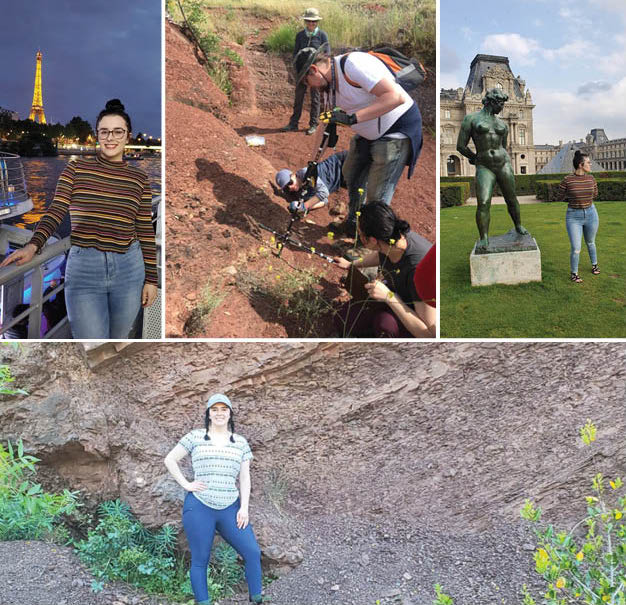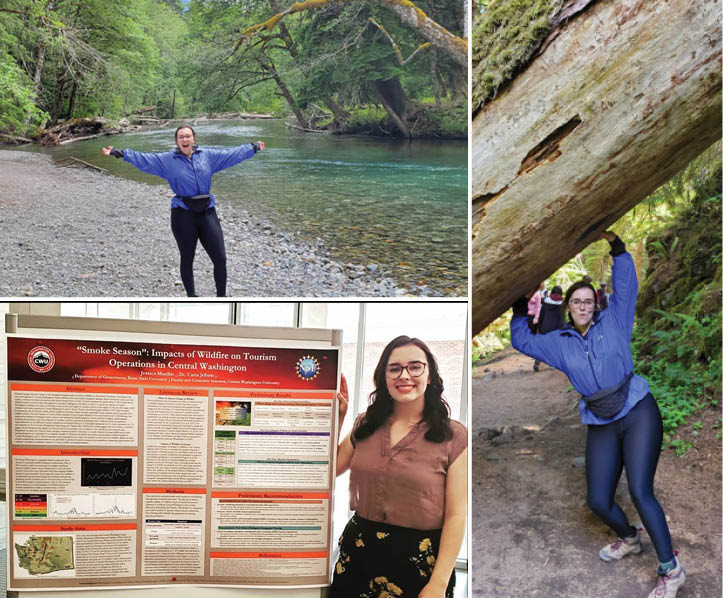Jessica Mueller is a Geosciences major at Boise State University and is a current participant in the TRIO Rising Scholars Program. This past summer she had the opportunity to participate in not one, but two, research programs! Jessica recounts her experience and shares photos below.
Research Program 1 – Lodève, France
My name is Jessica Mueller. I am a junior majoring in Geosciences at Boise State University and a proud member of the TRIO family! This past summer, I had the privilege of being involved in two research programs, the first was a four-week training on paleoclimate field geology in Lodève, France and the second was a ten-week interdisciplinary research program on the impacts of wildfire on tourism operations in Central Washington. My France trip began an immersive cultural experience in Paris. We walked to the Eiffel Tower, saw the hustle and bustle of Paris traffic, ate incredible food, and walked through the Tuileries Gardens. We also visited historic museums such as Galerie de Minéralogie et de Géologie, the National Museum of Natural History, the Louvre, the Musée du quai Branly – Jacques Chirac. I was blown away by the sheer beauty of the natural world and human imagination.
After our time in Paris, we travelled south to the Lodève region. This is when our training began. We had a mixture of field and computer work days. In the field, we were trained to measure, describe, and record stratigraphic section. We learned about the geologic processes that created paleolakes, sedimentary basins, diamictites, and volcanic outcrops. With the help of my mentors and cohort, I was able to combine the magnetic, microscopic, chemical, and stratigraphic properties of my section to identify the presence of a paleosol horizon.
When my time in France came to an end, I flew fourteen hours back home to Boise and had a day and a half to recuperate, before hopping into my car and driving towards my next adventure, in Ellensburg, WA.

Research Program 2 – Ellensburg, Washington
Once in Ellensburg, we began our structured research program. We established our work schedules, mentor meetings, and I developed my research question; “how has increased wildfire activity and severity impacted the tourism businesses within Central Washington?” With the guidance of my mentor, I gathered contextual information about my topic, such as fire and air quality statistics. Then we began to structure our experiment by defining our population of interest and creating an interview process. I reached out to wineries, event planners, hotels, and tour guides throughout Central Washington, asking if they would like to be interviewed about wildfire resilience and preparedness. This was difficult because of scheduling constraints, but when all was said and done, we completed twenty-six interviews. At the end of my Washington experience, I presented my preliminary results at the CWU Research Conference.
I had a great time in Ellensburg, and learned so much about the value of interdisciplinary research. I was able to practice my orating and writing skills, while spreading awareness about the impacts that climate change related hazards are having on our communities. Both of my summer experiences allowed me to develop new skills and network with others who are passionate about the environment, all while striving to become a better scholar and advocate for the Earth.
